

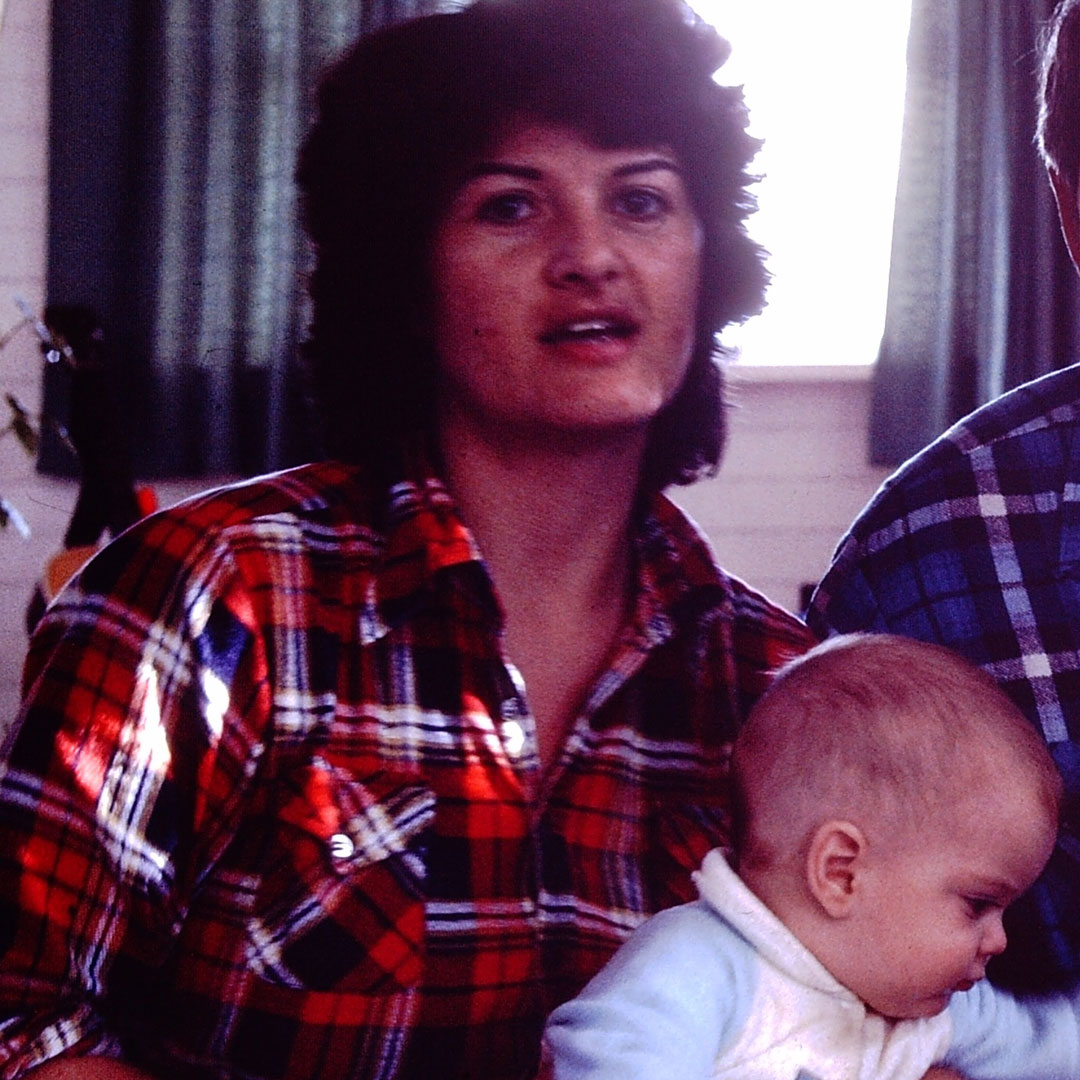
Driven by his mother’s passing and grounded in his faith, Dr. Nathan Neufeld is dedicated to helping patients and their families stay connected through the pain of a cancer battle.
When 17-year-old college student Nathan Neufeld saw his mother for the last time, she didn’t know who he was. Ravaged by breast cancer, debilitated by a series of strokes and rendered insentient by narcotic painkillers, Tina Neufeld passed away without uttering a word to her husband and three sons.
“I got there only 24 hours before she passed in the end,” he says today. “The whole experience is something no one can ever be prepared for. I just wish she would’ve had the ability to be more awake and alert and be able to communicate on her deathbed. She was on so many narcotics, she was non-verbal and unable to communicate.”
It was this experience that steeled young Nathan’s commitment to become a doctor, a profession he was drawn to at an early age, inspired by his mother, who was a nurse and his home-school teacher. “I was exposed to her love of caring for people at an early age,” he says. “Her energy and passion for helping others encouraged me to pursue a career in medicine.”
Today, Nathan Neufeld, DO, continues to be motivated by his mother’s experience. A Pain/Palliative Care Program Specialist at City of Hope Atlanta, Dr. Neufeld is driven to offer cancer patients pain management options that allow them to remain present in the moment and spend quality time with family members and loved ones, even if it’s in the last days of their lives.
“The idea of my mom being able to interact more is the kind of hope I have now for other families—to see that, when families come together on someone's death bed, it can be a peaceful experience and not a narcotic experience, as much as possible,” he says. “And sometimes, that's not possible at the very, very end. But, even still, I think it drives me to know how really awesome it would be if patients could have last words with their loved ones as they pass.”
On a summer day in 1982, Abe and Tina Neufeld’s first son was born in Winnipeg, Manitoba. He was premature and weighed less than 5 pounds. Despite his challenging beginning, the child proved to be a gift from God to his parents, living up to the name they gave him: Nathan, Hebrew for “His gift,” and Jon, short for Jonathan, Hebrew for “God has given.”
“I was 4 pounds, 12 ounces and had a 50-50 chance of living,” Dr. Neufeld says.
Nathan Jon Neufeld not only survived but thrived as a child growing up “in the sticks” in rural Manitoba. Life for the Neufelds was all about family, faith and some “hobby farming,” Dr. Neufeld says. He and his brothers Philipp and Jordan developed a strong sibling bond. Summers were spent working on their own small family farm, but mostly on neighbors’ farms and buffalo and cattle ranches. He also drove silage trucks, which are large container trucks that carry fodder for livestock.
“I learned to drive when I was 8 years old,” he says.
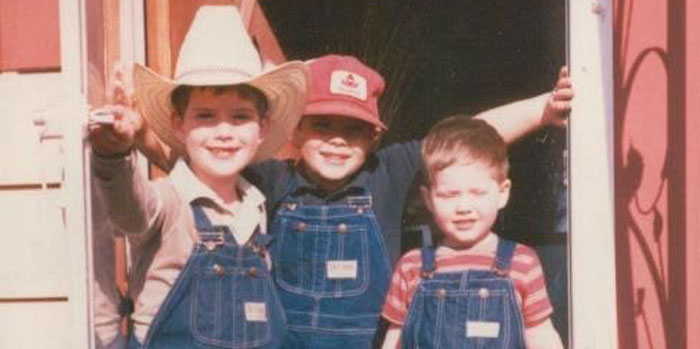
School days were also family time. Tina Neufeld put her nursing career on hold to home-school her three boys. “We had access to a public school, but she liked to teach and thought that she could do a good job,” Dr. Neufeld says. “And I'd like to think she did.”
When the future doctor was 12, his father, a general contractor, farmer and pastor, was hired at a church in Souris, North Dakota, a town so small, so remote and spread across the plains that one neighbor couldn’t see the next-door neighbor’s house. Located six miles south of the Canadian border, Souris had a population of 83 when the Neufeld family moved there in the 1990s. Today, the town’s population is 37.
A year after moving to Souris, however, the Neufeld family’s world changed forever when Tina Neufeld was diagnosed with breast cancer.
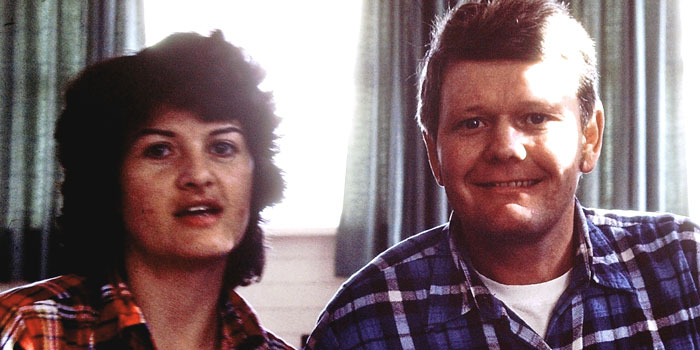
Devastated and devoted to nursing the family matriarch back to health, the Neufelds moved back to Canada to be closer to family. The days of home-schooling ended when young Nathan was sent to public school, and eventually to boarding school, as the family “chased health care,” moving from place to place in search of the best treatment available for his mother. “They thought it would be more stable for me to actually just stay in school,” he says.
Away from home, Dr. Neufeld grew up fast, excelling in school and developing the leadership skills that would serve him well in years to come. He also grew into his role as the caring and in-charge oldest brother.
“I hadn't lived at home since I was 13, so I've kind of been on my own for a long time,” he says. “If you asked my dad, he'll say I never had a childhood. I was always an adult. So, I think I had a pretty good grasp of what was going on.”
Although he juggled classes with visits home, Dr. Neufeld graduated high school a year early and entered college at 17. During that time, his mother’s health continued to worsen. She suffered a series of strokes and eventually entered hospice care. But in the end, it was the pain medications that stole her ability to communicate.
“She was still cognitive through the strokes,” he says. “But the narcotics are why she couldn't really interact much.”
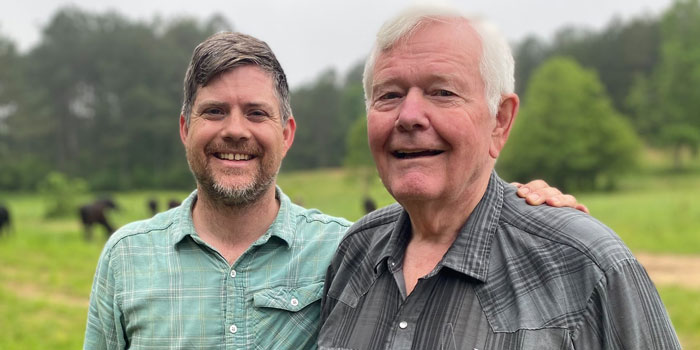
Dr. Neufeld says he wanted to be a doctor since he was 12. But he also felt a pull to the church. Grounded in faith at a young age, church and his father’s ministry were strong influences in his life. Both his parents were of the Mennonite faith, but Dr. Neufeld’s father was a pastor in the Evangelical Free denomination, which has its roots in Sweden and Norway.
Dr. Neufeld attended Trinity International University, an Evangelical Free college near Chicago, then studied in the Osteopathic Medicine program, a Touro University in Henderson, Nevada, near Las Vegas, where he was twice named class president.
His initial goal as a doctor was to treat cancer and end for others the suffering he saw his mother endure. But he soon discovered his emotions were still raw.
“So, I'm the oldest son. I’m the fixer. I thought, ‘I'm going to become this great oncologist and cure cancer,’” he says. “And so, I get into medical school and started doing some early shadowing and experience work with oncology. And I loved the field, but I would cry with every patient. And I realized that this may be too soon. I can't be functional when I’m crying with all the patients. I’ve got to find something else.”
While attending medical school, Dr. Neufeld was introduced to an occupational therapy student named Stephanie Janasky. Six months later, they were engaged. They were married in 2006, and today, they have six children.
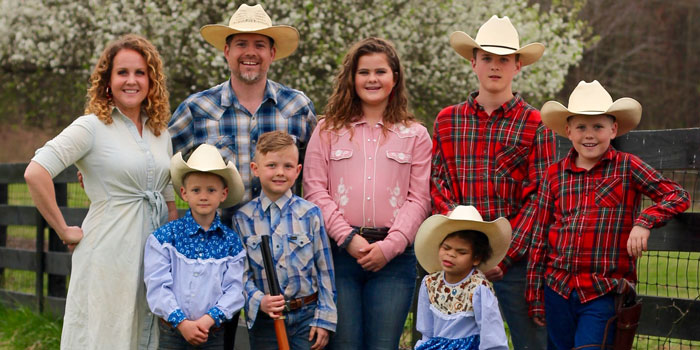
The young Neufeld family eventually traveled east, where Dr. Neufeld completed a residency and two fellowships at the Johns Hopkins University School of Medicine. Newly committed to physiatry—which is the practice of physical medicine, rehabilitation and pain management—Dr. Neufeld assumed leadership roles there among the fellows and residents. But the high-intensity pressure at Hopkins almost pushed him to abandon his medical practice for the ministry. Until his wife set him straight.
“There were times when I just didn’t know if I could do it anymore,” he says. “It was so intense. So, I talked to my wife about it and said, ‘Maybe I'll just be a pastor. I’m just going to stop all this nonsense and just become a pastor.’ And she said, ‘I don't play piano well enough to be a pastor's wife. So, you don't have an option.’”
Today, Dr. Neufeld is confident and at peace with his calling as a doctor and a man of faith. He considers his calling a hybrid: a “pastor-doctor,” he says. “I consider my caring for patients almost like a ministry.”
He’s active as a faith leader in Newnan, Georgia. He and Stephanie meet Sundays and often midweek with members of their church community, having lunches and block parties and putting a “focus on the community and the fellowship,” he says. In his “spare” time, he teaches at Auburn University, his wife’s alma mater, and has become a War Eagle football fan.
He’s also fulfilled his dream of helping cancer patients—not as an oncologist, but as a physiatrist and pain management physician who searches for new, innovative ways to avoid narcotics when possible while helping improve patients’ quality of life.
“I fell in love with this idea of being able to build a program here to help cancer patients with pain, which ties back to my mom's journey with cancer,” he says.
“I’ve been given certain gifts and talents and abilities. And so, I’m able to practice and use my talents to give back to humanity and to the community I'm a part of. I see it as a calling.”